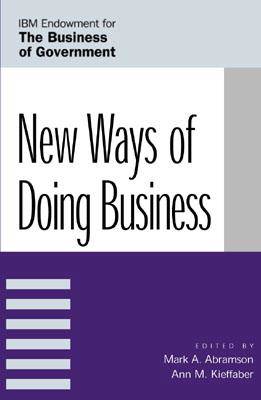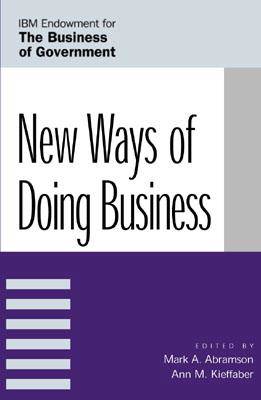
- Retrait gratuit dans votre magasin Club
- 7.000.000 titres dans notre catalogue
- Payer en toute sécurité
- Toujours un magasin près de chez vous
- Retrait gratuit dans votre magasin Club
- 7.000.0000 titres dans notre catalogue
- Payer en toute sécurité
- Toujours un magasin près de chez vous
New Ways of Doing Business
91,95 €
+ 183 points
Description
In their introduction, the editors of New Ways of Doing Business assert that in retrospect, it will be apparent that today's government, that of the early years of the 21st century, "was undergoing its most significant transformation since the decade of the 1930's when direct government-delivered services grew significantly as part of the New Deal." This newest volume in the IBM Endowment for the Business of Government series is an invaluable guide to navigating the sometimes controversial changes taking place in the internal operations of government, the delivery of services to citizens, and the delivery of environmental programs.
Spécifications
Parties prenantes
- Editeur:
Contenu
- Nombre de pages :
- 376
- Langue:
- Anglais
- Collection :
Caractéristiques
- EAN:
- 9780742533608
- Date de parution :
- 01-08-03
- Format:
- Livre broché
- Format numérique:
- Trade paperback (VS)
- Dimensions :
- 149 mm x 226 mm
- Poids :
- 467 g

Les avis
Nous publions uniquement les avis qui respectent les conditions requises. Consultez nos conditions pour les avis.





